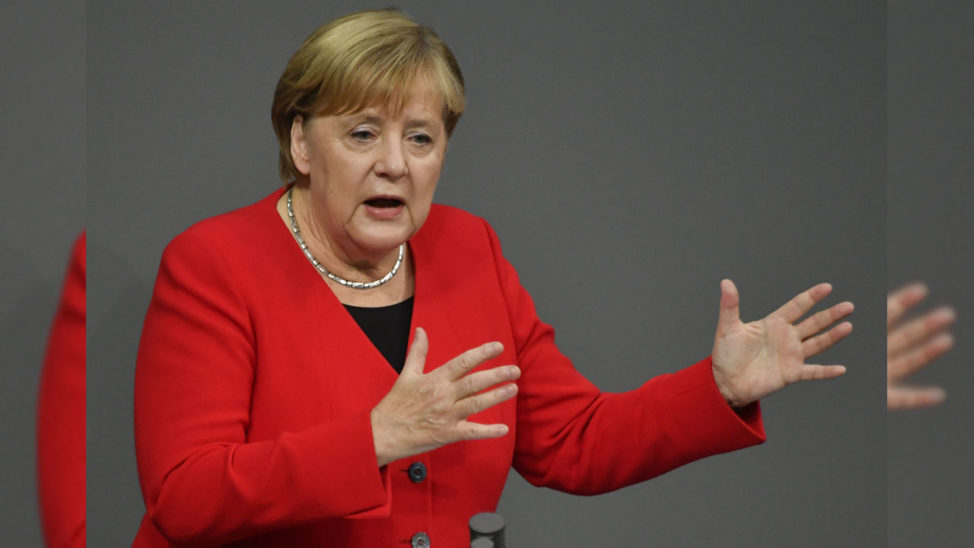German Chancellor Angela Merkel on Wednesday urged EU countries to speak as one in their dealings with China, warning it would be “disastrous” to go it alone at a time of tensions with the Asian giant over technology and human rights.
“One of the biggest dangers I see… is that everyone in Europe has their own China policy and that we end up sending completely different signals,” Merkel said in a speech to German lawmakers.
“That would not be disastrous for China, but it would be disastrous for us in Europe,” she added.
The European Union should adopt a common strategy on developing the next-generation 5G mobile networks, Merkel said, amid concerns that Chinese tech giant Huawei could be a used as a tool by Beijing for spying.
Germany has so far defied pressure from the United States to exclude Huawei from taking part in the bidding process for its 5G network, insisting that it would set stringent security conditions.
But critics have accused Berlin of trying to appease China, its largest trading partner, and putting economic interests first.
“It is undisputed that we need high-security standards for the development of 5G networks,” Merkel said.
“But we must also discuss this with other European countries” and try to come up with “European solutions”, she added.
Just like the bloc has a centralised agency that handles EU-wide approvals for medicines, there could be an EU agency for “5G certification”, Merkel said.
Huawei has strenuously denied the espionage claims.
Turning to the latest revelations of China’s mistreatment of Uighurs in detention camps in Xinjiang, Merkel said it was right to criticise the abuses that have come to light.
She echoed calls for United Nations representatives to be allowed access to the region and backed the EU’s condemnation of the crackdown.
The veteran chancellor also praised Hong Kong residents for “expressing their opinions” in last Sunday’s local elections, where pro-democracy candidates scored a landslide victory in a blow to Beijing.
“It’s a good sign that the elections in Hong Kong happened so peacefully,” Merkel said, after months of violent protests in the Asian financial hub.
THE GUARDIAN

